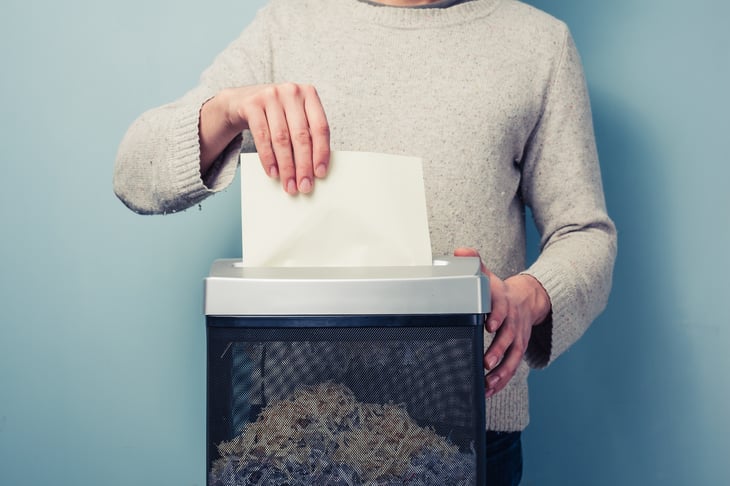
We often associate identity theft with scammers opening credit accounts or filing phony tax returns in someone else’s name. But there is another type of identity theft that can cause more problems than unexpected bills.
Medical identity theft occurs when someone uses your personal information to obtain health care or submit claims to your insurance company. This type of identity theft could hurt you financially if someone fails to pay their medical bills and your information is attached to the account.
More importantly, it could affect the care you receive. If someone else’s medical history is co-mingled with yours, health care professionals could be making recommendations or treatment decisions based on incorrect information.
Here are some ways to avoid that scenario and minimize your chances of medical identity theft.
1. Store health documents securely

Don’t be an easy target by leaving your health documents out where an unscrupulous visitor to your home can see or photograph them. This includes not just explanations of benefits, insurance cards and enrollment forms but also your prescription bottles.
Place your prescriptions in a private area of your home — not the kitchen or a bathroom that guests can access — and keep paper documents in a secure location. A safe, deposit box or the cloud are all options to consider.
2. Shred old health documents

When you are done with health insurance statements, explanations of benefits and other forms, don’t simply throw them in the trash or the recycling bin. Instead, shred all medical paperwork, including old insurance cards, before disposing of them. That way, no one can pluck them from the garbage and use your personal information.
3. Redact your prescription bottles

Likewise, when it’s time to throw out empty prescription bottles, don’t toss them in the trash without first removing your personal information. If the label can’t be easily peeled off, take a Sharpie and black out your name, address and account number before disposing of the bottle.
4. Ask questions when someone wants medical information

Just as you would never hand out your Social Security number without verifying the request was legitimate, so too should you be wary of providing medical information.
Sometimes, the requests may be legitimate but unnecessary. For instance, your kids’ summer camp enrollment form might ask for an insurance policy number. However, telling the camp that you will provide that information when and if needed is often an acceptable response.
Before sharing anything of a sensitive nature, ask why the information is needed, how it will be protected and who will have access to it.
5. Independently verify calls, emails and texts

Scammers have become increasingly sophisticated, and their texts, emails and calls often look and sound official. However, any unexpected request for personal information should be treated with suspicion. If you have a procedure coming up, a pre-registration call from a provider’s office makes sense. But an out-of-the-blue call should raise red flags.
To verify a request is legitimate, call the provider directly. Don’t click on any links in a text or email, and don’t use any phone number provided in the communication. Instead, look up the office number online or reach out to them using a service such as MyChart, if available to you.
6. Read your statements regularly

Don’t pitch your explanations of benefits when they arrive. These documents detail what claims have been made on your insurance account and how much your policy has paid. If you see a charge for care you didn’t receive, contact your insurer immediately.
While this step won’t avoid medical identity theft, acting quickly can minimize the damage if you are a victim.
7. Get your medical specialty report

Just as you have a credit report, you may also have a medical specialty report. These reports compile information about medical conditions and prescription drug purchase history and are used by life insurance companies in making underwriting decisions.
While intended for insurance companies, the reports can provide valuable information to you. If you see information in a report that doesn’t match your personal details — such as a prescription drug you’ve never taken — it could indicate that you’ve been a victim of medical identity theft.
You can request a report from MIB or Milliman IntelliScript, the two companies compiling this information for insurers. But be aware that not everyone will have a report with these two companies.





Add a Comment
Our Policy: We welcome relevant and respectful comments in order to foster healthy and informative discussions. All other comments may be removed. Comments with links are automatically held for moderation.